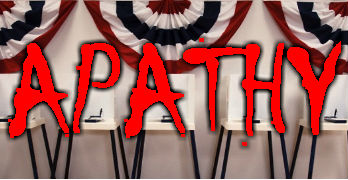
Stephanie Singer is City Commissioner of Philadelphia, the largest city on the east coast after New York
We in Philadelphia have a major problem. Our younger generation doesn’t vote in statewide and local elections in anywhere near their numbers. They are hitting below their weight. As a result, issues of particular importance to Philadelphians, like high-quality schools and the money to support them, are given short shrift by our political leaders.
How can we improve the situation? There are some long-range remedies and some small but immediate steps to take.
For the long term we could teach the next generation how to organize to use the power they earn by voting. Organizations like the American Association of Retired People (AARP) help “seasoned folk” like me advocate for senior centers, pensions and medicare. We strengthen the AARP by voting in large numbers in every election — the more AARP members vote, the more elected officials will respect the input from the AARP’s leaders.
 For the long term we could develop and adopt effective civics education in schools, prisons and other institutions.
For the long term we could develop and adopt effective civics education in schools, prisons and other institutions.
While we are waiting for the American Association of Young People and the Philadelphia Civics Core Curriculum to get off the ground, there is plenty we can do to encourage younger Philadelphians to vote in the next election, on May 20th.
First, we can tell young people our own stories. I speak of my father’s work helping Americans in Mississippi register to vote in the summer of 1964 — the same summer that two young men who looked just like him were murdered there — and of his return the following summer. I speak of my then 17-year-old daughter’s impact on my own election in 2011 — she earned me over 100 votes by canvassing outside a crowded polling place.
Second, we can urge the young people we know to vote in every election. My daughter is away in college now, so I nag her about her absentee ballot. And while I try not to nag people outside my immediate family, I do make a habit of encouraging young people to vote in the next election.
Third, we can share compelling statistics at every opportunity. About 30% of adult Philadelphia citizens are Millennials (born after 1979). Yet only 13% of the people who voted in November 2013 were Millennials. In contrast, over 60% of the ballots in that election were cast by people over 50. Under these circumstances, is it any wonder that the proceeds of the lottery go to seniors and not to student loan forgiveness or job training? Why should politicians pay attention to people who don’t vote?
Mostly, though, the younger generation would rather listen to each other than listen to older folk. Our best opportunity to connect the Millennials to voting and civic engagement is to listen to them. What matters to the young people you meet? How does government touch their lives? How can voting help them reach the goals that they have chosen for themselves? Once they understand how voting adds to their power we won’t have to teach them much — with their social media skills, they soon will out-organize and out-vote us all.
Stephanie Singer
Philadelphia City Commissioner
City Hall, Room 132
Philadelphia, PA 19107
www.PhiladelphiaVotes.com
Voter Turnout in Young People is Too Low!!!
Adrian Tawfik says
Great article! I think youth turnout is a must. What about Australia where they fine people for not voting? It’s a good way to raise money and they have over 90% turnout I believe.